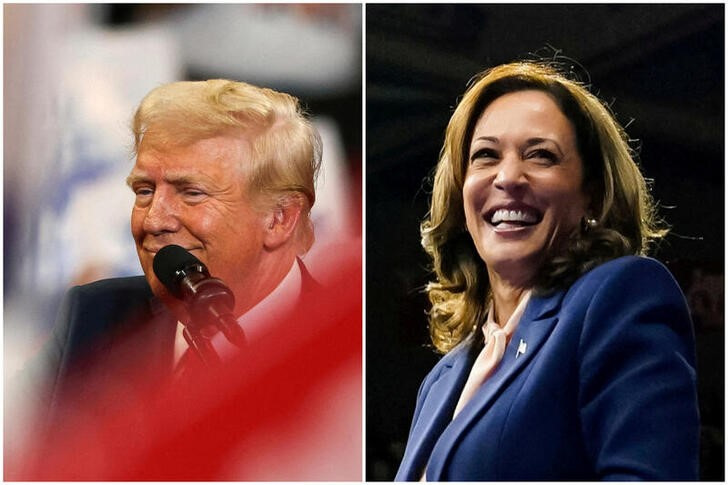Investing.com -- The US presidential election is a "key challenge" stocks on Wall Street will need to work through in the coming months, according to analysts at RBC Capital Markets.
In a note to clients on Monday, the analysts said that the upcoming vote in November has injected "uncertainty" into the forecast for equities. They noted that "a number of companies" referred to this murky outlook in their recent earnings calls.
But the RBC analysts flagged that, in prior election years, the benchmark S&P 500 index has "usually see[n] a pullback" in September and October before a "rebound afterwards."
September trading this year has so far seemed to follow this trend. In the first week of the month, US stocks slumped to their worst weekly performance in over a year, as investors gauged soft recent economic data and cautious commentary from some Federal Reserve officials.
The analysts said markets have also been factoring in the domestic tax policy proposals of both of the two presidential candidates: Democrat Kamala Harris and Republican rival Donald Trump.
Harris has outlined plans to increase the corporate tax rate to 28% from 21% as part of a bid to find a "fiscally responsible way to put money back in the pockets of working people and ensure billionaires and big corporations pay their fair share." Trump, on the other hand, has promised to slash the corporate tax rate to 15% from 21%.
"In terms of the math," the RBC analysts said, Harris's plan is forecast to dent S&P 500 earnings by "more than 8%."
Meanwhile, they estimated that Trump's plan is estimated to boost returns by over 7%. However, they cast doubt over this projection, citing comments from Trump last week in which the former president vowed that the tax reduction to 15% would be "solely for companies that make their product in America" instead of all US corporations.
The analysts added that they expect a much-anticipated debate between Harris and Trump this week could provide an opportunity for investors to get more insights into both candidates' domestic policy agendas.
A recent national poll by The New York Times and Siena College showed a tight race in the final weeks before the election, with Trump holding a slight edge over Harris.
The survey shows Trump with a 48% to 47% lead, a margin that falls within the poll's three-point error range, suggesting that the outcome of the November 5 vote is still highly uncertain.
